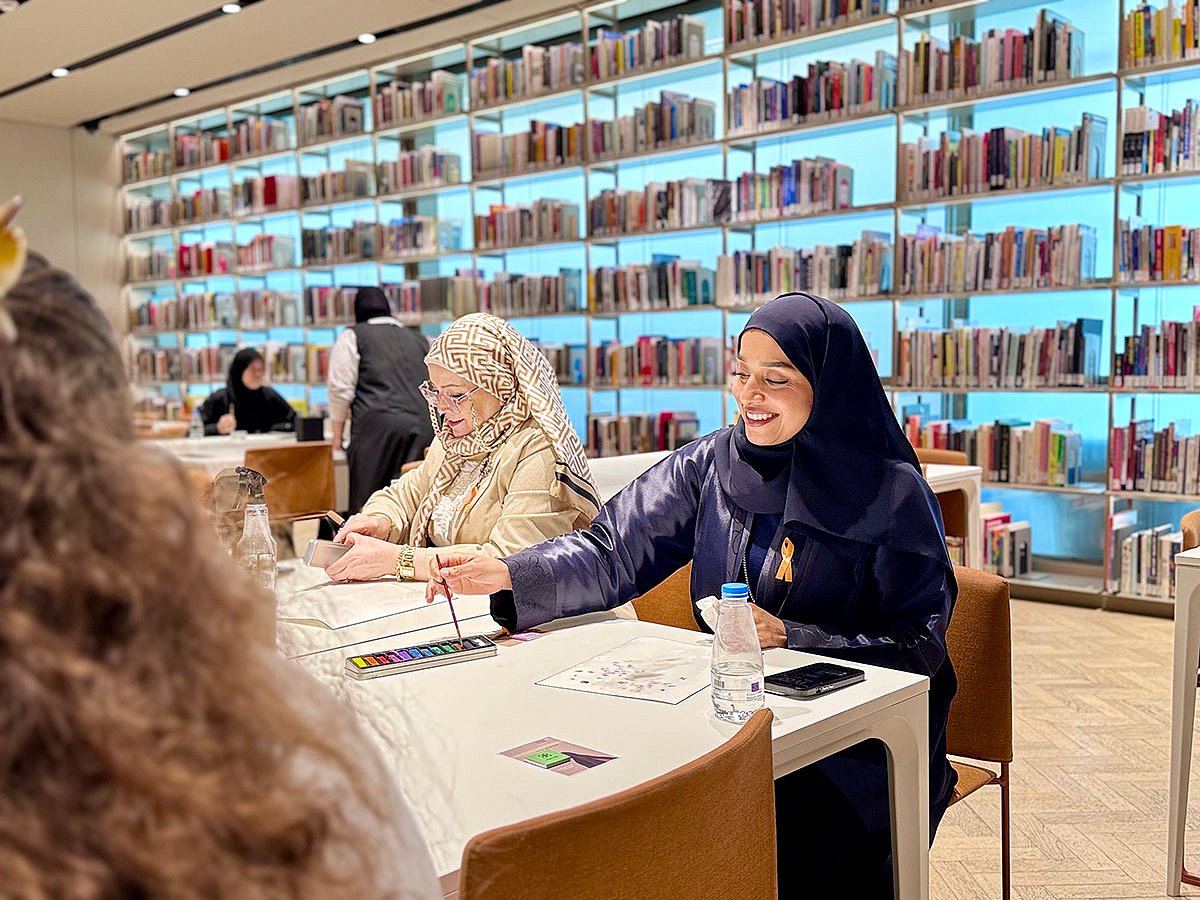Sharjah renews call to protect women on global anti-violence day
One in three women worldwide experiences physical or sexual violence, UN campaign warns

Sharjah: Marking the International Day for the Elimination of Violence Against Women, the Director of Sharjah’s Women’s Protection Centre, Mariam Ismail, stressed that protecting women is a national responsibility that must be shared by all members of society.
“Protecting women is a national duty, and the responsibility lies with all of us,” she said during an event held at the House of Wisdom under the theme “Empowering Women Begins with Protecting Them.”
Ismail reaffirmed the emirate’s commitment to supporting survivors of abuse through a wide network of social, psychological, legal and economic services. “Violence against women is not fate, nor something we can remain silent about. It requires a clear and united stance to change it,” she said.
Empowerment through protection
Ismail highlighted the centre’s mission to combat all forms of abuse and to empower women who have experienced violence, helping them rebuild their lives and reintegrate into society.
“Women make up half of society and are the foundation on which generations are raised. If a woman is abused and left without support, future generations will struggle to face life’s challenges,” she said.
The event featured participation from City University Ajman, Sharjah City for Humanitarian Services and a wide audience of specialists and social workers.
Comprehensive services
During the event, Ismail outlined the services provided by the Women’s Protection Centre, which assists women facing verbal, physical, economic and sexual abuse, in addition to offering witness protection.
The centre provides shelter, legal advice, psychological and social counselling, and rehabilitation programmes aimed at restoring independence and dignity. She explained that the centre’s approach is built on the vision of moving women “from protection to empowerment” and contributing to a society free of violence and discrimination.
Awareness lecture
Dr. Nebal Khayal from City University Ajman delivered a lecture titled “Violence Against Women: Causes, Forms and Strategic Solutions.”
She explained the historical roots of the UN’s decision to designate November 25 as a Global Day of Awareness—recalling the 1960 assassination of the Mirabal sisters in the Dominican Republic, who became symbols of resistance to injustice.
1 in 3 women globally faces violence, UN campaign warns
One in three women worldwide experiences physical or sexual violence, often at the hands of their partner, according to UN statistics highlighted by Dr. Nibal. Only 52% of women globally can freely make decisions about their sexual and reproductive health, while women make up 71% of human trafficking victims.
In the Arab world, 37% of women experience some form of violence, and 14% of girls marry before turning 18. Worldwide, 700 million girls are married.
Forms of abuse
Violence against women takes many forms, including physical harm, psychological abuse, sexual assault, economic deprivation, and emerging cyber threats such as online blackmail and defamation.
Dr. Khayal She stressed that violence does not occur in isolation but is shaped by cultural, economic, legal and psychological factors. Its impacts, she added, extend from individuals to entire communities, affecting social stability, public health and economic development.
The colour orange, used during the UN’s global campaign “End Violence Against Women,” symbolizes a bright future free from violence. The annual campaign runs from November 25 to December 10 which marks International Human Rights Day.
Joint action required
Addressing violence against women requires coordinated legal, educational, social and religious efforts, the speaker noted.
Key recommendations included:
Stronger legislation and clear criminal penalties
Expanding shelters and specialised support services
Integrating respect and equality into school curricula
National awareness campaigns targeting men and youth
Supporting women’s economic independence
Promoting balanced religious messages that reject violence
UAE’s strong legal framework
The lecture also highlighted the UAE’s comprehensive laws to protect women, including the Federal Law on Domestic Violence Protection, along with helplines, shelters, and community counselling services.
These measures aim to provide integrated psychological, social, and legal support, and to ensure unified institutional efforts to protect women, children and the elderly.
Penalties for offenders range from fines to imprisonment, depending on the gravity of the offence.
Respecting women is respecting life
In her concluding remarks, Dr. Khayal emphasized that eliminating violence against women requires political will and community-wide cooperation.
“Building a society free from violence begins with the family, school, and media. Protecting women means protecting families — and the nation. When we respect women, we respect life itself,” she said.
Sign up for the Daily Briefing
Get the latest news and updates straight to your inbox
Network Links
GN StoreDownload our app
© Al Nisr Publishing LLC 2026. All rights reserved.
